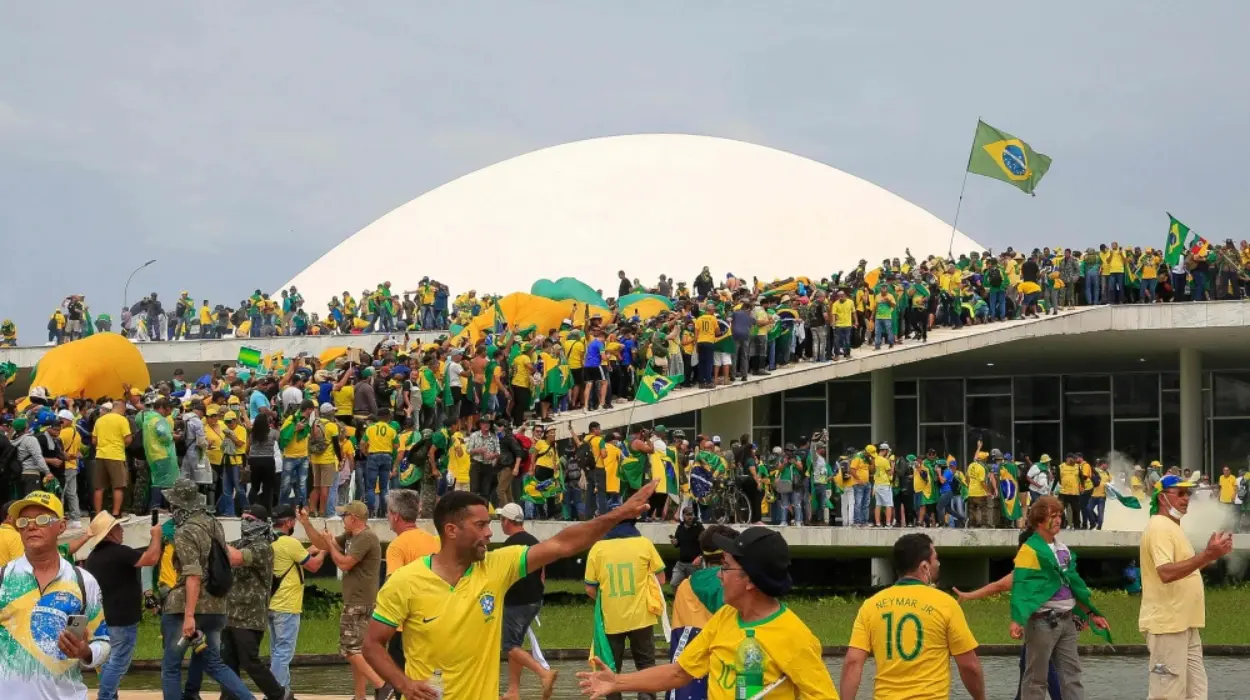US (Transatlantic Today) – A day after supporters of former Brazilian President Jair Bolsonaro stormed government buildings, many saw the attack as inevitable. Months of Bolsonaro’s claims of election fraud, echoing former U.S. President Donald Trump’s rhetoric, set the stage for unrest.
Vitor Spier, a Bolsonaro supporter living in Orlando, Florida, condemned the violence but admitted he had been expecting some reaction. “We don’t believe he [Lula] won by the will of the people,” Spier said, reflecting widespread claims of election fraud among Bolsonaro’s base.
The unrest also came as no surprise to Bolsonaro’s opponents. “This was totally avoidable,” said Alinio Azevedo, a Brazilian living in Aspen, Colorado. “Bolsonaro has been talking about this for months.”
Bolsonaro’s U.S. Ties and the Influence of Trump’s Allies
Bolsonaro, who had been staying in Florida, has long maintained strong ties with Trump and his allies, including former White House strategist Steve Bannon. Following Sunday’s riots, Bannon called the rioters “Brazilian freedom fighters” and falsely claimed, “Lula stole the election.”
Trump’s influence on Bolsonaro’s campaign strategy was evident. His son, Eduardo Bolsonaro, met with Trump and Bannon multiple times, adopting U.S.-style election fraud claims. He even spoke at an event hosted by Mike Lindell, a key figure in spreading Trump’s false claims of a stolen 2020 election.
Social Media’s Role in Organizing the Attack
Much like the U.S. Capitol riot, digital platforms played a crucial role in Brazil’s unrest. Protesters used WhatsApp, Telegram, and YouTube to coordinate actions, spread misinformation, and rally Bolsonaro supporters.
“Digital media was used not only to share disinformation but also to organize and execute the attacks,” said researcher Laura Pereira. “This is a growing challenge for democracy.”
Key Differences from the U.S. Capitol Riot
While parallels to the Jan. 6, 2021, Capitol attack are clear, one major distinction sets them apart: timing.
“In the U.S., rioters tried to stop Biden’s certification,” said Bruna Santos, a senior adviser at the Brazil Institute. “In Brazil, Lula had already been sworn in.”
Despite the attack, Bolsonaro has shown little interest in returning to Brazil, where authorities are detaining protesters and investigating political figures involved in the riots. Approximately 1,500 people have been arrested, making it one of the worst attacks on Brazil’s democracy in four decades.
Government Response and the Future of Brazilian Democracy
In the wake of the violence, Brazil’s Supreme Court suspended the governor of the Federal District for failing to prevent the riots. Critics argue authorities ignored warning signs, allowing Bolsonaro supporters to organize openly on social media.
“Everyone saw this coming,” Azevedo said. “The question now is whether Brazil can prevent it from happening again.”


























